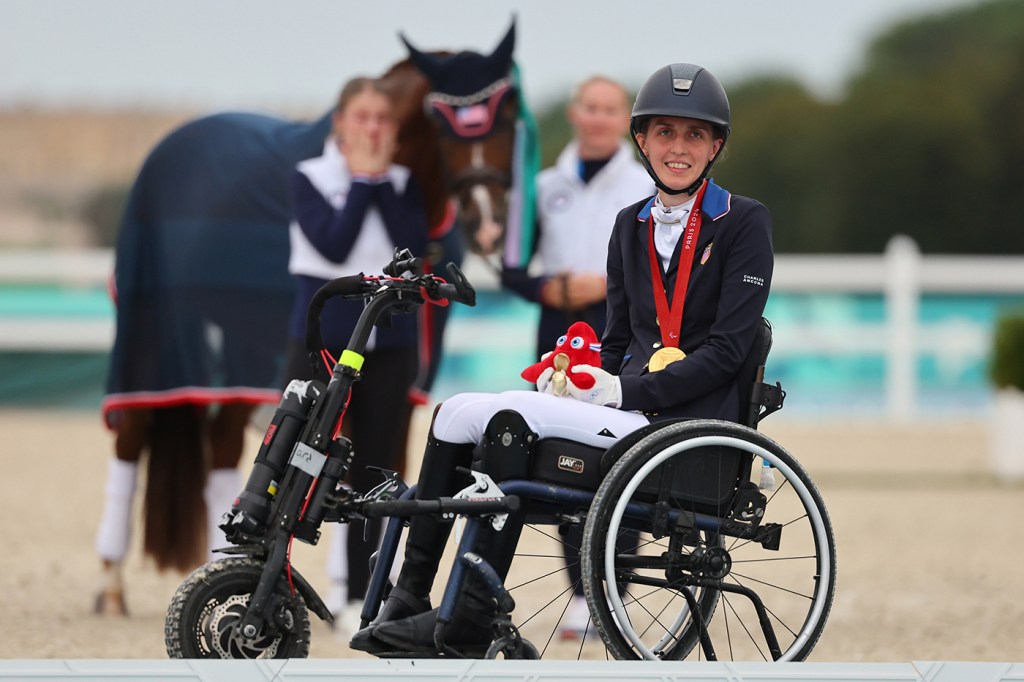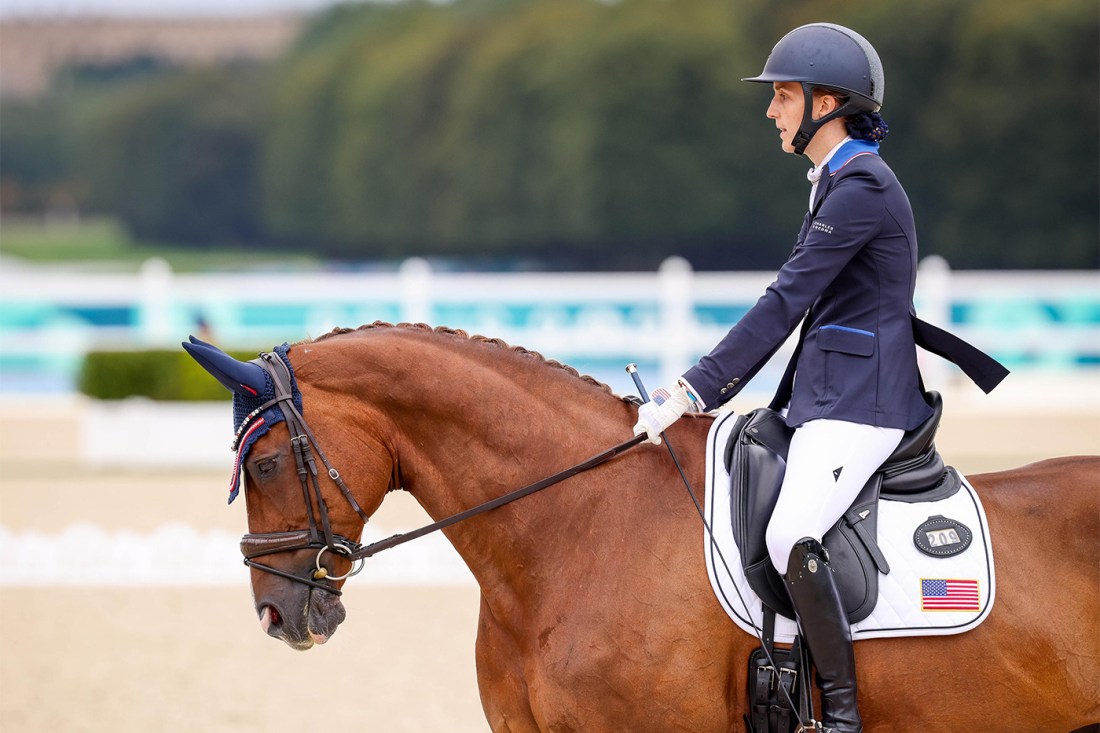Northeastern graduate Fiona Howard rides to equestrian triple gold in her first Paralympics
Howard and her horse Diamond Dunes capped off their Paris games with a winning 81.994% in dressage freestyle, riding to the ‘Avatar’ film score. They won gold earlier this week in individual and team events.

Fiona Howard only started riding para dressage three years ago, but a decisive debut on the sport’s biggest stage has established her and her horse, Diamond Dunes, firmly at its pinnacle.
Howard, a 2021 Northeastern University graduate, capped her first Paralympic Games in Paris with a gold medal ride in the Grade II freestyle dressage event, scoring a 81.994% and beating out silver medalist Georgia Wilson of Great Britain by about two and a half percentage points. Heidemarie Dresing from Germany won bronze.
The win comes on the heels of a U.S. victory in the Team event on Friday. Howard and Diamond Dunes scored an 80.000% — a huge score in dressage, a personal best for the pair and the highest individual score across any para dressage event at the Games to that point.
The three Americans competing earned a combined 235.567% score ahead of silver medalists The Netherlands and bronze medalists Germany. It was Team USA’s first-ever team medal in equestrian at the Paralympics.

Those wins come on the heels of a gold medal individual ride for Howard and Dunes on Tuesday.
After the team event, Howard heaped praise on Dunes, the 11-year-old Hanoverian gelding she’s been paired with since March.
“Even trotting around the ring I was like, ‘he feels really good,'” she said. “What a feeling, when you can just trust your horse.”
As its name suggests, freestyle dressage is a looser affair than other dressage events, in which horse and rider pairs all perform the same set routines of movements to accumulate points. Freestyle dressage works more like figure skating: pairs work compulsory movements into routines choreographed specifically for them, to music they choose. The genres can cover a wide range, from classical to hip hop and arena rock. This season, Howard and Diamond Dunes have used music from the “Avatar” film soundtrack.
Featured Posts
In dressage, an equestrian discipline where experience matters and most top competitors are paralympic veterans, Howard and Dunes’ decisive performances and gold medal sweep have been extraordinary.
“It’s the smoothness, it’s the regularity, the transitions. It’s the overall package,” commentator Deb Criddle said of the pair during Peacock’s livestream of the team event. “It just looks so easy, so elegant.”
Para dressage riders compete in one of five grades based on their physical limitations and accommodations. Howard, who uses crutches and a wheelchair, competes at Grade II. During rides, her hands and legs are strapped to her stirrups, and she can use her voice and light dressage whips to help signal Diamond Dunes.
Howard and Dunes train together at Hof Kasselman, an elite equestrian barn in Germany, with Nicole Wego. Howard divides her time between Germany and Wellington, Florida, where she trains with fellow Team USA member Kate Shoemaker.
Howard has been competing in para dressage since 2021, but she has been riding horses at an elite level since childhood. Born in London to an American mother and a British father, she started riding at age 3 and competed internationally as a youth in reining, a Western equestrian discipline.
At 19, after years in and out of hospitals with a series of serious health issues, she was diagnosed by her team at Boston Children’s Hospital with dystonia, a neurological disorder that slowly sapped her ability to walk and control her limbs.
While completing a psychology degree at Northeastern, she spent nearly 800 days in the hospital receiving treatment. In 2021, as part of the university’s equestrian club, she started learning how to ride again all over again, working with her body’s newfound limitations.
Speaking with Northeastern Global News in May, Howard recounted a night in the hospital that she almost didn’t survive — and how it strengthened her resolve to get back in the saddle after years away from the barn.
Her doctors “were worried my heart was going to stop,” she said. “And this is kind of morbid, but I was OK with not making it. I was surviving, but it wasn’t a life. And it was in that moment I thought, ‘I need to get back to horses.’”











